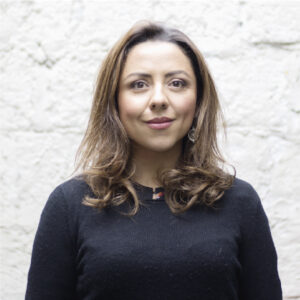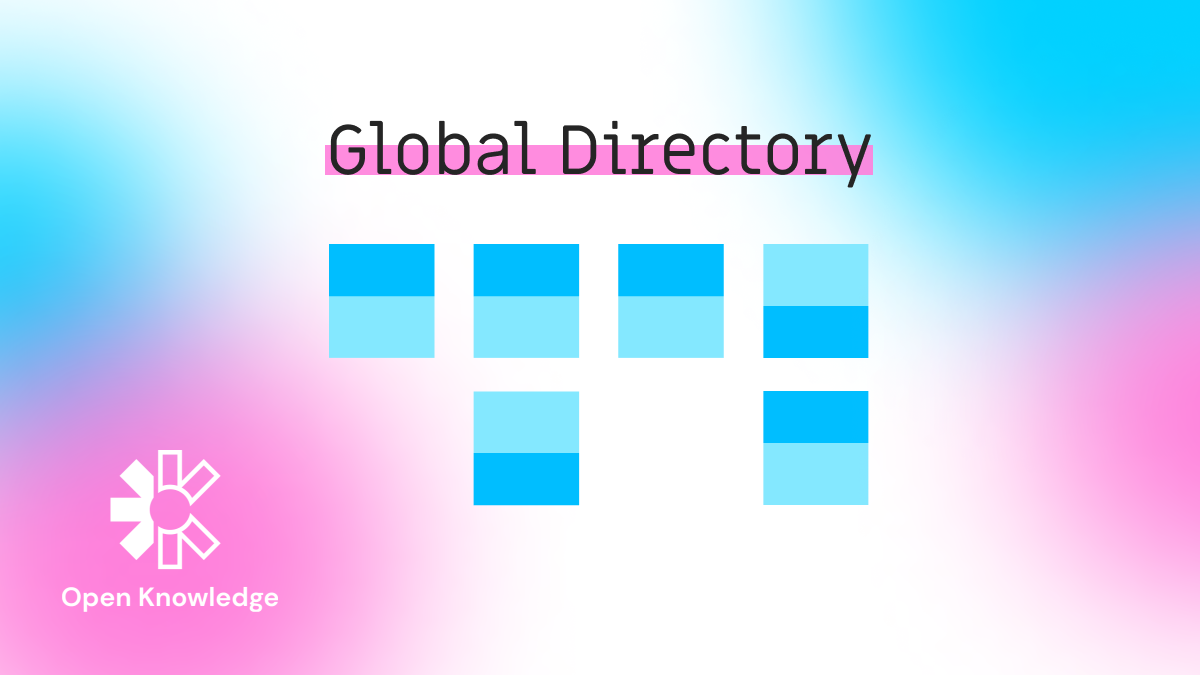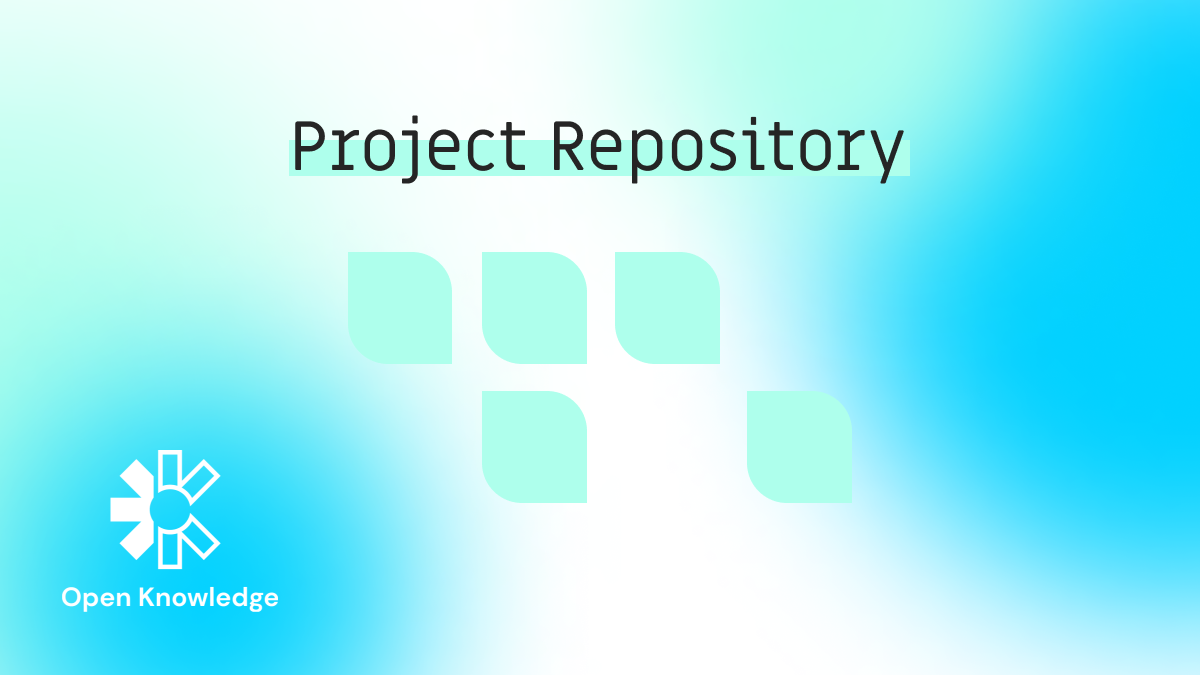

Annual Report
We are once again prioritising our international network, which is now present and active in dozens of countries. We have reorganised our tools and services to continue offering cutting-edge technology aimed at open access to data, science, government information, and content in general. We deepened our collaboration with communities around the world, seeking to promote more conversations in Global South countries. We reviewed our position as open advocates to face the most pressing problems of our times, such as climate change and the various crises of modern democracy.
And we will continue to do all of that in 2023!
Highlights from the Network
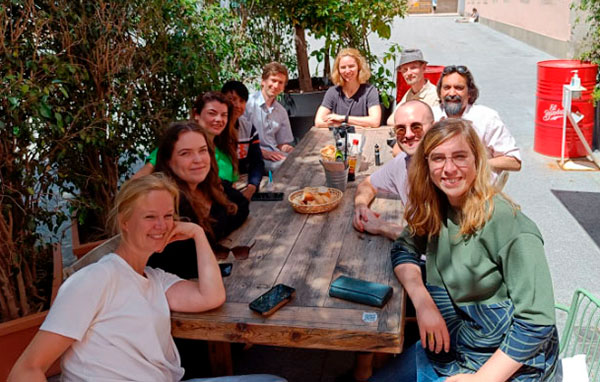
On November 28th we relaunched the Open Knowledge Network with two new projects: the Project Repository, a database of the most prominent projects from the Open Knowledge Network and allies in the open movement, and the Global Directory, a highly curated and searchable database of specialists in different areas of the open movement.
Highlights from our Projects
We entered 2022 with enthusiasm for finding ways to work together on the many challenges we face today, starting with climate data, so we gathered with climate researchers, activists and organisations to brainstorm ways to collaborate and use the Frictionless Data tooling to make open climate data more usable, accessible, and impactful (read about it here). This work was well-received and there is a lot of enthusiasm from potential collaborators and funders in this area.
Software
We have released Frictionless Framework (v5), a data management framework for Python that provides functionality to describe, extract, validate, and transform tabular data. It’s the second public version of this software, incorporating functional and performance improvements based on user feedback. It now also includes a CKAN, GitHub, and Zenodo integration. These features were highly sought after by the community.
We have also released Frictionless Repository (v2), a data management service that brings continuous data validation to tabular data in your repository via Github Action. This service is based on the Frictionless Framework and now supports all the new features of the framework.
We continued research on Livemark (v1), a data presentation framework for Python that generates static sites from extended Markdown with interactive charts, tables, scripts, and other features. In 2022 we didn’t have this work prioritised but we’re going to continue development in 2023 as this project is very promising and we have already been able to migrate all our documentation portals to Livemark.
We started working on Frictionless Application (MVP), a data management application for Browser and Desktop that provides functionality to describe, extract, validate, and transform tabular data with a UI. This project is a logical continuation of the Frictionless Data project's standards and software with a focus on the non-technical audience: data publishers, librarians, and people who prefer visual interfaces over command-line interfaces and programming languages. We’re targeting Q1 of 2023 for the first public release.
We focused on Frictionless Adoption work and we participated in the development of valuable CKAN extensions based on Frictionless Software: ckanext-validation, providing the ability to validate uploaded tabular resources, and ckanext-datapackager, which exports a dataset as a Frictionless Data Package.
We continued enriching the Frictionless Team and contributors community. Since April 2022, a new developer, Shashi Gharti, has joined the Frictionless Data core team. Shashi worked on the GitHub and Zenodo integrations for the Frictionless Framework and also presented her work at two community calls in August 2022 and October 2022. During November and December 2022, Polina Ganina, an intern at OKF, participated in the Frictionless Application work. During the year we received many contributions from our community – We want to say a huge thank you to everyone who participated in the work!
Fellows
The 3rd cohort of Frictionless Fellows, mentored by Lilly Winfree, officially ended their fellowship in July 2022. Melvin Adhiambo Ochieng, Guo-Qiang Zhang, Victoria Stanley, Kevin Kidambasi Ogola, Lindsay Gypin, Zarena Syrgak were an amazing cohort. You can read about their experience in packaging data and in reproducing someone else’s research data (not such a frictionless experience as some may think!).
At the end of their fellowship, they shared their thoughts and what the fellowship meant to them in the form of blog posts. We encourage you to read them all, because they are really insightful and moving:
- A road to openness by Guo-Qiang
- The end by Melvin
- Is this really goodbye? by Victoria
- A Frictionless Future by Lindsay
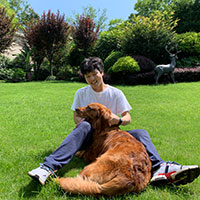 Guo-Qiang Zhang
Guo-Qiang Zhang
 Kevin Kidambasi Ogola
Kevin Kidambasi Ogola
 Victoria Stanley
Victoria Stanley
 Lindsay Gypin
Lindsay Gypin
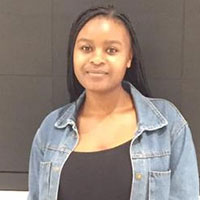 Melvin Adhiambo Ochieng
Melvin Adhiambo Ochieng
 Zarena Syrgak
Zarena Syrgak
Community
- A community member, Peter Desmet, has worked on a Frictionless R library, to read and write Data Packages.
- Mister Open Data published his thoughts about Frictionless in a blogpost and a follow-up blog (available in English and German) on his open issues with Frictionless.
To better showcase community contributions, we have updated the website and created a “Frictionless Universe” page.
We have also published 4 new case-studies this year
As the Discord community chat was becoming less and less practical, at the beginning of the year it was moved to Slack (with a Matrix bridge for those wishing to use an open source equivalent), which enables us to keep track of the conversations and open issues in a clear way. We observed that it also led to an increase in community interaction.
- Evgeny Karev’s Livemark presentation at FOSDEM.
- Lilly Winfree’s training on FAIR and Frictionless workflows for tabular data for TU Delft research library.
- Sara Petti’s presentation on research data management and reproducible data workflows with Frictionless Data for the 6th cohort of Open Life Science Fellows.
- We published an article on the Frictionless Data standards in the Common Place.
For the third time since 2017, OKF has partnered with Transparency International (TI) to support their chapters in building their data literacy and advise them on data project delivery. This time the support was provided in the context of the SANCUS project which aims to advance democratic accountability worldwide. As part of this project, we designed and delivered a ‘Data Collection for Civic Projects’ training, aiming to provide TI chapters with key knowledge and methods to tackle the various data collection tasks that civic projects inevitably face, whether on the field or as part of desk research.
United Nations Refugee Agency (UNHCR)
This year we continued our alliance with the United Nations by further developing and enhancing the RIDL application for the UN Refugees Agency. RIDL (Raw Internal Data Library) is the platform UNHCR uses to centralise and secure all refugee and operational data used by their staff. This repository built on CKAN ensures their team is able to share and document sensitive data comprehensively, as well as make it available externally for operational partners.
Highlights from Training and Data Literacy
The challenge was to strengthen capacities of government officials to leverage digital technologies, especially from a developing country perspective, and to respond to the socio-economic and human rights challenges engendered by their use. The digital era governance requires a new set of skills and competencies from civil servants to ensure that digital transformation and regulatory initiatives are in line with a human Rights, Openness, inclusive Access and Multistakeholder participation and gender equality-based (ROAM-X) approach. The output was the development of a set of nine recommendations in three competency domains that are context-sensitive and adaptable for use to support capacity building for civil services across ICT Ministries and Digital Units in governments all over the world.
We also supported the organising of the CoAct online conference which took place in October, and where the results of the consortium’s work were presented.
Lastly, as the Consortium member tasked with overseeing the data strategy of the CoAct project, OKF also published the final version of the project’s Data Management Plan, which was our last CoAct deliverable.
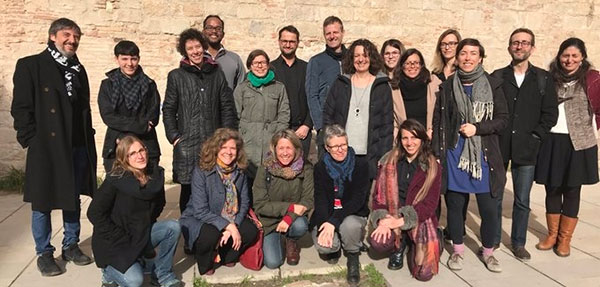
After three years together, we and all CoAct partners have released a white paper on Citizen Science applied to Civic Organisation Projects
Highlights from our Collaborations

From left to right: Arnau Monterde, Pablo Aragón, Lilly Winfree, Renata Ávila, Tarmo Tokkainen and Amir Taaki
The transversal generativity that open practices led Barcelona to world leadership was the inspiration for the Open Knowledge Foundation to choose the city as the setting for its first post-pandemic meeting, in partnership with The Center for Digital and Democratic Innovation / Open Canòdrom, under the leadership of Arnaud Monterde.
Collaborators from more than fifteen different nationalities and backgrounds met to exchange with different digital communities and validate a re-examined open agenda prepared to face the upcoming challenges at a one-day Open Knowledge Symposium, which reflected the past, present and future of our movement, with conversations ranging from the early days of the open movement to cutting edge topics such as decentralised finance, Web3 and dark DAOs. The majority of staff and representatives from the Board and Network attended the meeting, committing to a joint agenda in the future.

ODD event in Tanzania
We supported 14 events; 10 open data events (with a grant of USD 750 each) and 4 events (with a grant of USD 1000 each) for the “Ocean data for a thriving planet” category. Organisations from Madagascar, Bolivia, Botswana, Nigeria, Ecuador, Burkina Faso, Liberia, Tanzania, Brasil, Sweden, Argentina, Indonesia, and India were supported to host events and activities. The detailed list of organisations that receive small grants is here.
The small grants program was supported by Microsoft and Builder Bridge. OKF also made the contribution to cover the coordination and rethinking work of the project. The blog posts with detailed reports of the events from the organisers are available on the OKF blog and the full report of the project can be accessed here.
Please feel free to join the Open Data Day Google Group and get connected with others.

ODD event in Sweden
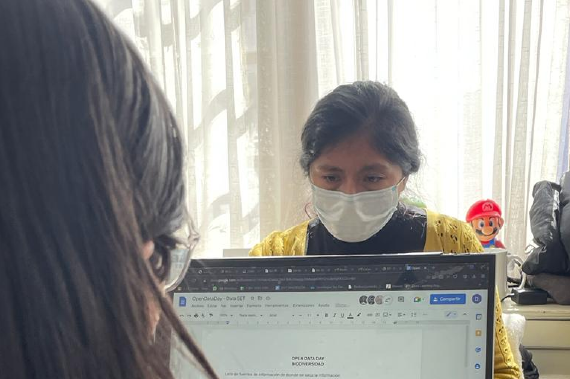
ODD event in Bolivia

ODD event in Brazil
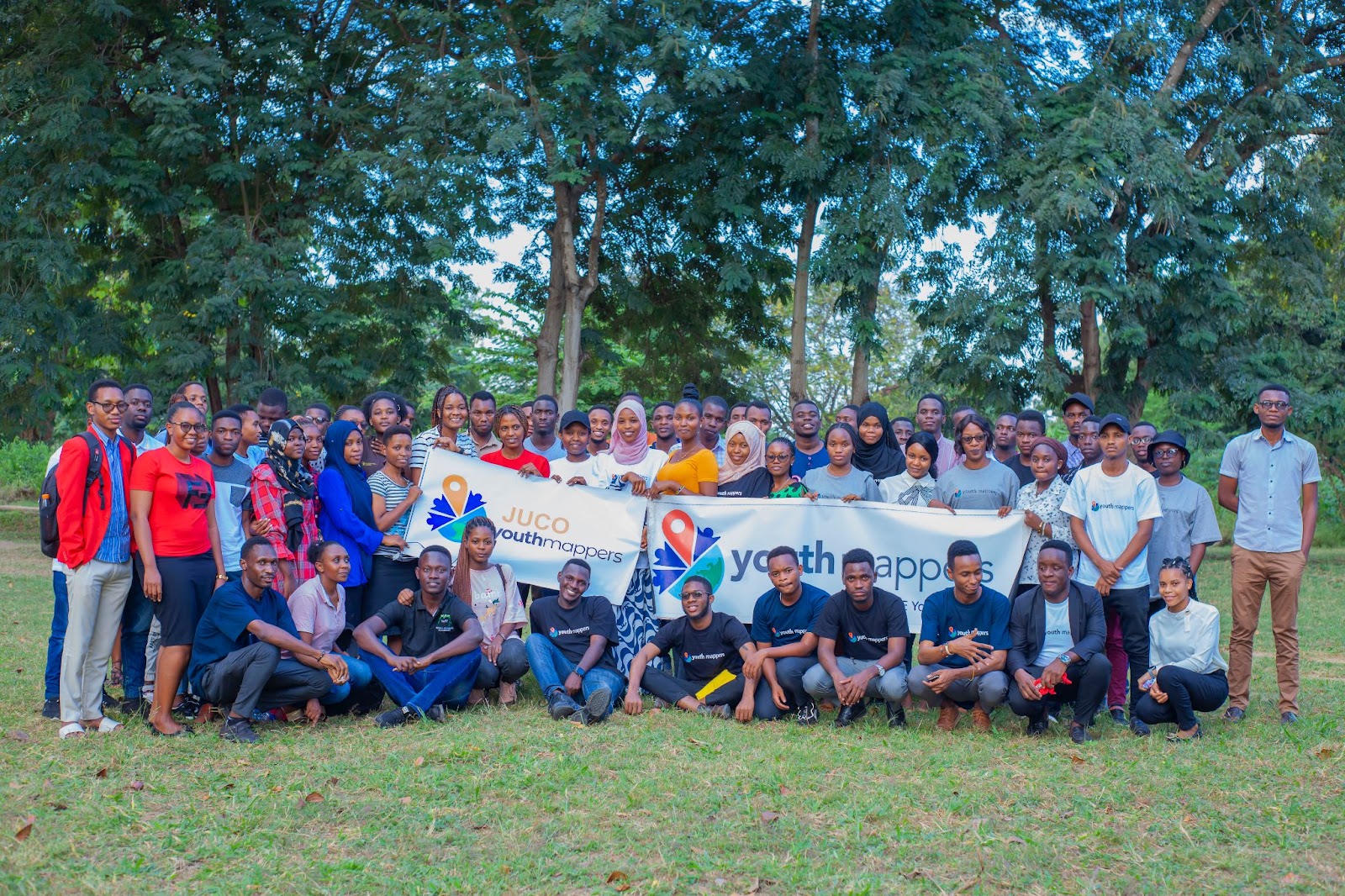
ODD event in Tanzania
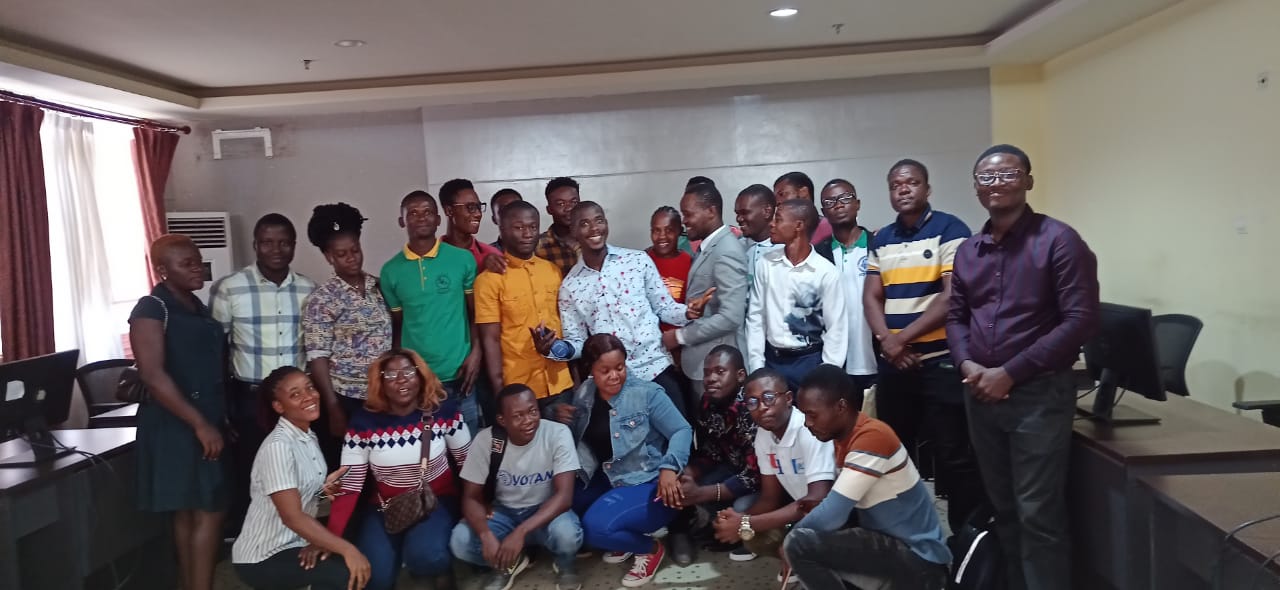
ODD event in Liberia
OKF helped shape what will be the next major release of CKAN, 2.10, contributing major features and managing incoming contributions. We have also been actively involved in the process to define what CKAN 3.0 will look like and have continued our work to strengthen the CKAN community.
Remembering our top blog posts
Welcome OKF's new team members
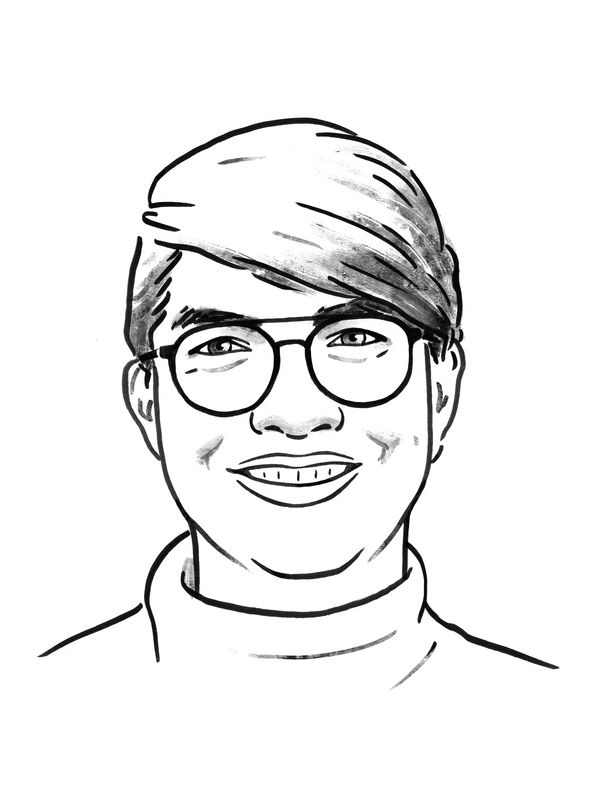
Nikesh Balami
International Open Data Lead
📍 Kathmandu, Nepal
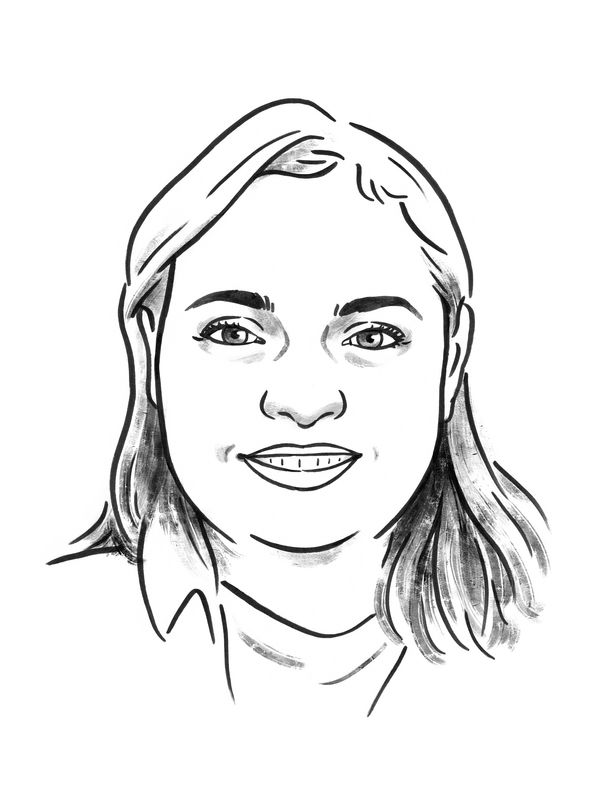
Shashi Gharti
Developer
📍 Kathmandu, Nepal
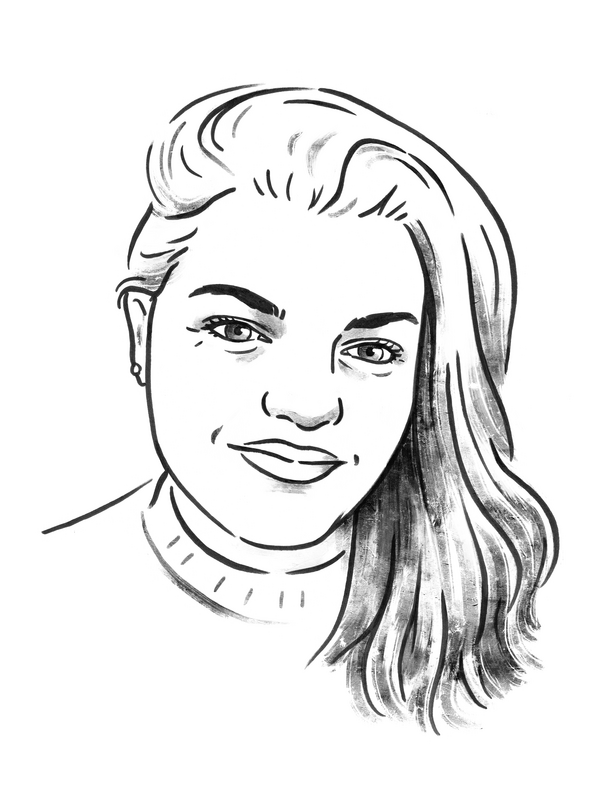
Carol Matos
Partnerships Lead
📍 São Paulo, Brazil
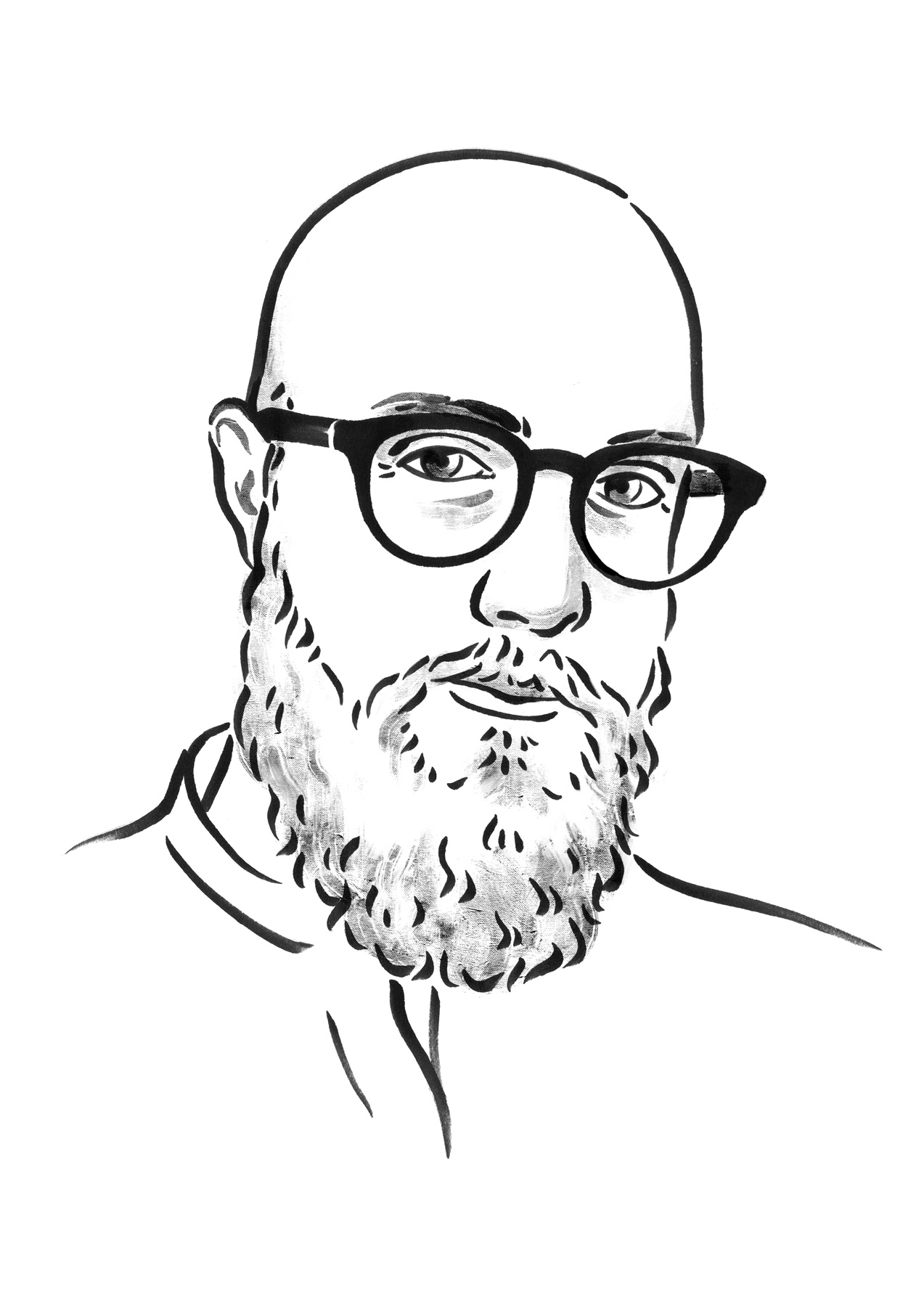
Lucas Pretti
Communications Lead
📍 Madrid, Spain
How to get involved

